On Saturday 16th December activists held their annual Christmas vigil to campaign for the reopening of the Black Cap, an iconic LGBTQ+ venue on Camden High Street.
Earlier in the year it was reported that pubs across the UK were closing at a rate of two per day, suffering from soaring energy bills and the impact of the cost-of-living crisis on customers’ disposable income.
For London’s LGBTQ+ community in particular, December has seen the closure of G-A-Y Late due to surrounding building works and safety concerns, and the announcement that redevelopments mean The Glory will be closing its doors to find a new venue in the new year.
However, nearly a decade after shutting down in 2015, activists hope the Black Cap in Camden will soon be back in business.
Writer, producer and entertainer Alex Green, who has helped lead the campaign since 2015, said: “I’m really excited about next year, for us and to see what The Glory does in its new space.”
Although activists hold vigils outside the Black Cap every Saturday between 2-4pm, this weekend’s Christmas special treated passing tourists to fancy dress and festive carols (Cher’s ‘DJ Play A Christmas Song’ blasting from a small speaker).
As usual, people were able to take flyers, hear about the ongoing campaign, and pose for photographs under cut-out wigs.
The Black Cap, originally called the Mother Black Cap, dates back to 1751, and was twinned with the Mother Red Cap (now The Underworld) across the road.
The Cap became one of the city’s most prominent gay bars in the 1950s and 1960s, before male homosexuality was decriminalised in 1967.
Fondly dubbed the ‘Palladium of Drag’, it hosted the likes of Regina Fong, Julian Clary and Dave Lynn, and was where Lily Savage debuted in 1978.
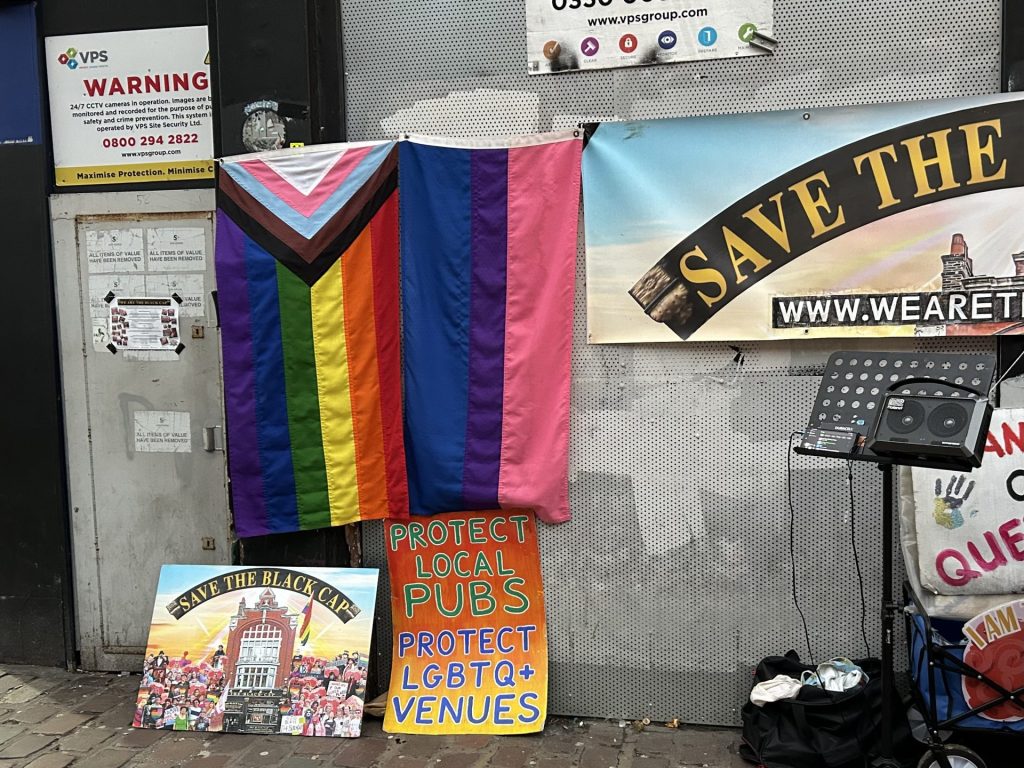
Importantly, the Black Cap was also known for its diverse and welcoming space for all members of the LGBTQ+ community and its allies.
Alex said: “The Cap was really inclusive.
“You’d go in and see lesbians, people of colour, trans people and straight people all mixing together.
“It was a genuine community space in the heart of Camden.”
The campaign to save the Black Cap began before its closure: the company that owns the building, Faucet Inn, began making planning applications to turn the upper floors into luxury apartments from 2012, something that often leads to the eventual closure of the whole venue due to noise complaints.
Since then the campaigners have won an Asset of Community Value ruling under the Local Government Act 2011, meaning the Black Cap cannot be sold without a community group getting the chance to buy it first.
They have also compiled testimony from previous customers, staff members and performers to confirm that the entire venue, from top to bottom, falls under a ‘sui generis’ planning classification that means permission is needed for any redevelopment that would change the building’s use.
December newsletter out now! Read about our initial discussions with the owners about re-opening, plus festive events coming up on 8 and 16 December. https://t.co/sdrs5KOfLf #SaveTheBlackCap #WeAreTheBlackCap pic.twitter.com/0SBZ7MQVMf
— #WeAreTheBlackCap (@weareblackcap) December 2, 2023
A UCL report from 2017 found that London’s LGBTQ+ spaces fell by 58% between 2006 and 2017, from 121 bars, clubs, pubs, cafes and performance spaces to just 51.
38% of these closures were due to redevelopment.
The Black Cap campaigners are keeping their momentum up for the new year, and are optimistic that the beloved venue will be reopening its doors soon.
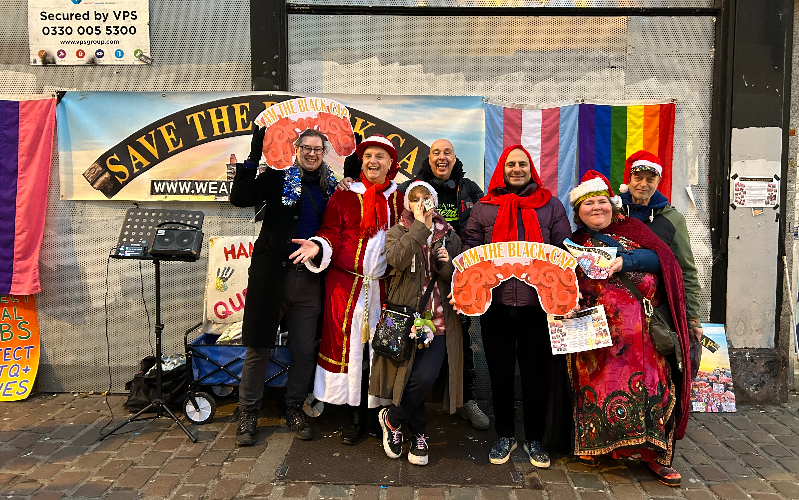
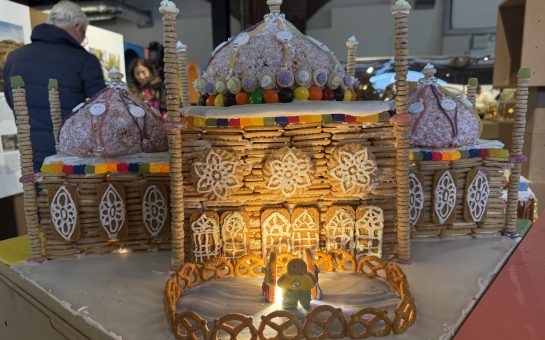

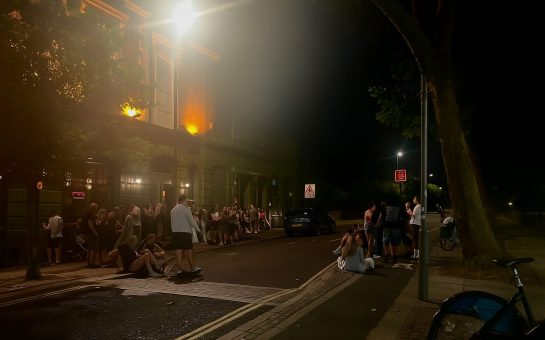
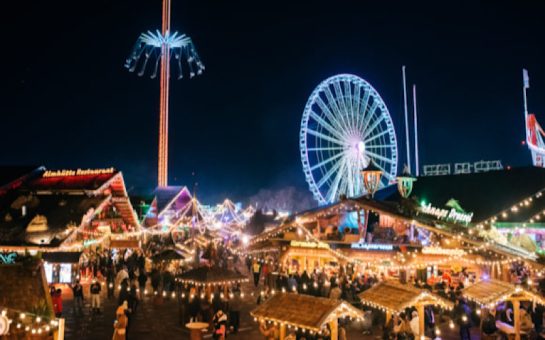
Join the discussion